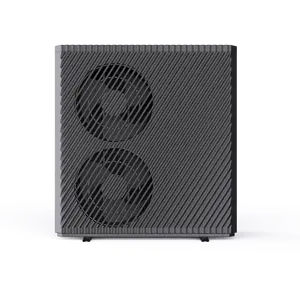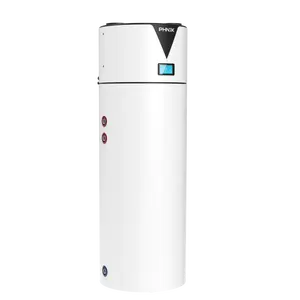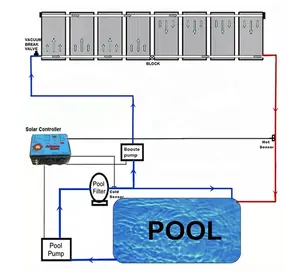Solar pool heaters are becoming an increasingly popular choice for pool owners looking to heat their swimming pools in an environmentally-friendly and cost-effective way. These systems use the power of the sun to heat the water in your pool, providing a comfortable swimming experience throughout the year. People from all walks of life, including homeowners, hotels, and public pools, are turning to solar pool heaters as an alternative to traditional pool heating systems. Originating in ancient Greece, solar pool heaters have come a long way since their humble beginnings. Past versions were often inefficient and bulky, but modern advancements in technology have made them much more efficient and compact. There are various types of solar pool heaters available for consumers, including solar mats, solar rings, and solar panels, each with their own unique features and benefits. With the ability to save money on energy costs and reduce carbon emissions, it's no wonder that solar pool heaters have become a top choice for pool heating among eco-conscious individuals and businesses alike.
Benefits of Solar Pool Heaters
Solar pool heaters offer numerous advantages as part of pool heating systems. One major benefit of these heaters is their ability to leverage renewable energy, harnessing the sun's rays to heat pools. This makes them a highly efficient and sustainable option for pool heating, reducing reliance on non-renewable energy sources and lowering energy costs over time. Another advantage is the longevity of solar pool heaters. These systems are made of durable materials like polypropylene or UV-resistant polymers, ensuring a longer lifespan compared to traditional pool heaters. The robust materials are resistant to weather damage, making them an ideal choice for outdoor installation. In terms of aesthetics, solar pool heaters offer a sleek, unobtrusive look that can blend seamlessly with any outdoor setting. Solar panels or mats can be installed on rooftops or open areas, not detracting from the overall landscape. Despite these advantages, one drawback of solar pool heaters is their dependency on sunlight. The efficiency of these heaters can be compromised during cloudy or rainy days, potentially requiring a backup heating system for consistent performance. However, the benefits of solar pool heaters, from cost savings to environmental sustainability, far outweigh these minor limitations.
Maintaining Solar Pool Heaters
Maintaining solar pool heaters is straightforward and crucial for maximizing their efficiency. These pool heating systems typically require little intervention once they are installed correctly. Regular checks and minor cleaning can keep them operating optimally, thus contributing to sustainable swimming pool heating. Firstly, it's essential to ensure that the solar panels or mats are clear of any debris or dust that could block the sun's rays. A simple rinse with water can typically remove any accumulated dirt. Secondly, for locations with severe winter weather, the solar pool heater may need to be drained to prevent damage from freezing temperatures. Deciding between the various pool heating options can depend on factors like the pool's location and size, the amount of sunlight the area receives, and personal preferences for environmental impact and cost. Consulting with a professional can assist in making an informed decision. While the initial cost of a solar pool heater might be higher than traditional heaters, the savings in energy costs over time make it a worthy investment. As a final note, incorporating solar pool heaters into the repertoire of swimming pool heating systems is a step towards a more sustainable future.




































 浙公网安备 33010002000092号
浙公网安备 33010002000092号 浙B2-20120091-4
浙B2-20120091-4